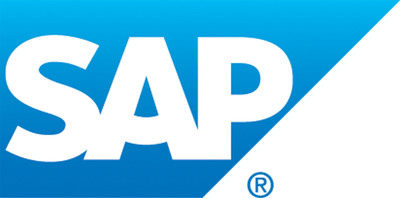

WALLDORF, Germany, Oct. 29, 2015 /PRNewswire/ -- SAP NEWSBYTE -- SAP SE (NYSE: SAP) today announced that 88,763 children and youth from 17 African countries took part in the more than 3,000 free coding workshops as part of Africa Code Week 2015. The initiative, held from October 1–10, far exceeded the target of training 20,000 set by SAP and partners, including the Cape Town Science Centre, the Galway Education Centre, Simplon, Ampion and the King Baudouin Foundation.

A strong network of more than 100 partners — local governments, NPOs, NGOs, educational institutions and businesses — made the initiative a resounding success.
"Africa Code Week is exactly the kind of leverage we needed to make coding accessible to underserved children and allow most of them to even touch a computer for the first time," said Louis Diakité, CEO of Alink Telecom and Africa Code Week ambassador in Ivory Coast.
In Rwanda and South Africa, a team of nonprofits led by SAP, Ampion and the Cape Town Science Centre worked together to bring free coding workshops to more than 18,000 children in urban and rural areas. Touring the Kigali and Western Cape regions, a PC-equipped bus named "Ampion Africa Code Week on Tour" invited more than 1,200 children to learn coding on board.
With the highest engagement ratio of 99 youth per 100,000 population and a total of 33,589 introduced to coding during Africa Code Week, Morocco wins the Africa Code Week 2015 award and will receive a grant from SAP to roll out digital education kits in participating schools. As second on the list of top-contributing countries with a ratio of 92 per 100,000 and 20,291 youth engaged, Ivory Coast will receive a grant from SAP to support the creation of a web programming school for underserved young Ivorians. Tunisia came third in the 2015 ranking with a ratio of 46 per 100,000 and more than 5,000 youth introduced to coding.
"The viral impact of Africa Code Week in Morocco is a perfect example of how governments can leverage continent-wide initiatives like Africa Code Week to encourage ICT teaching in schools while driving engagement among students and teachers alike," said Rachid Benmokhtar, Moroccan Minister of Education and Vocational Training.
Government support was also notably strong in Rwanda, South Africa, Togo and Tunisia.
With a ratio of female participation reaching 60 percent in Tunisia, 56 percent in South Africa and 50 percent in Togo, Africa Code Week also made inroads into gender equality in ICT education. Building on the success of this first edition, SAP and partners are now preparing Africa Code Week 2016, with plans to expand to 30 countries.
For more information, visit the SAP News Center. Follow SAP on Twitter at @sapnews.
Media Contact:
Rajiv Sekhri, + 49 6227 77 4871, rajiv.sekhri@sap.com, CET
Any statements contained in this document that are not historical facts are forward-looking statements as defined in the U.S. Private Securities Litigation Reform Act of 1995. Words such as "anticipate," "believe," "estimate," "expect," "forecast," "intend," "may," "plan," "project," "predict," "should" and "will" and similar expressions as they relate to SAP are intended to identify such forward-looking statements. SAP undertakes no obligation to publicly update or revise any forward-looking statements. All forward-looking statements are subject to various risks and uncertainties that could cause actual results to differ materially from expectations. The factors that could affect SAP's future financial results are discussed more fully in SAP's filings with the U.S. Securities and Exchange Commission ("SEC"), including SAP's most recent Annual Report on Form 20-F filed with the SEC. Readers are cautioned not to place undue reliance on these forward-looking statements, which speak only as of their dates.
Logo - http://photos.prnewswire.com/prnh/20110126/AQ34470LOGO
SOURCE SAP SE